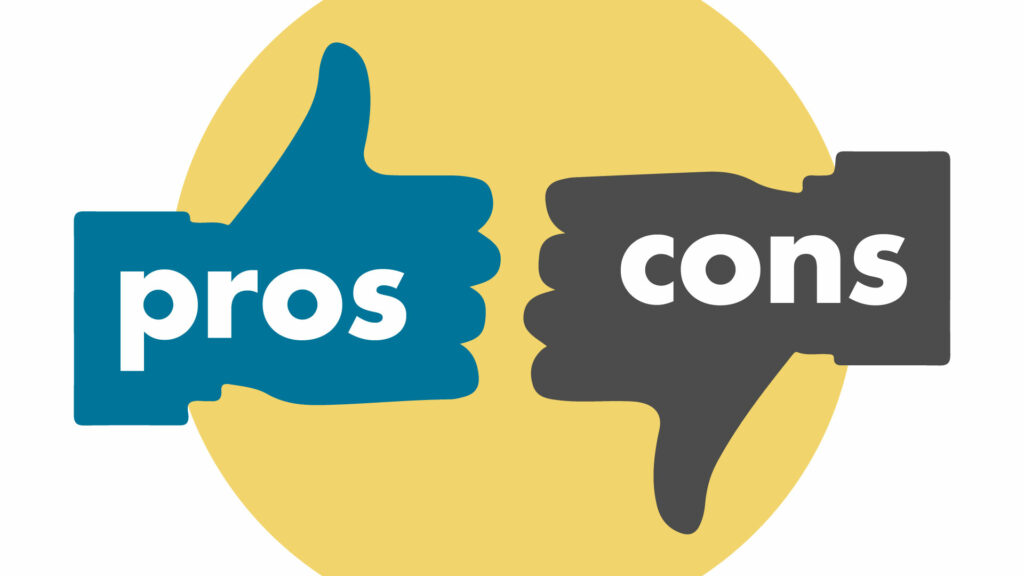WordPress as a CMS System. What is WordPress, and what are its pros and cons?
Among various CMS systems, WordPress is the most popular. What is WordPress, is it worth choosing as a CMS system, and what are its advantages and disadvantages?
The Internet is a place where we see an assemblage of organized content and resources. It is because each website is designed to arrange its content making it presentable. Otherwise, without any management, the content would be stacked like words in a notepad. To manage this display, a Content Management System (CMS) is used to put things in order. There are many popular systems to manage website content but the most practical one is WordPress. In the following article, we shall look at various features of WordPress and why it is the most popular system in use.
What is the purpose of a CMS system?
Content Management System (CMS), is a software that creates and publishes web content. It also includes editing new tabs on a website, modifying text content, or changing the design layout. The most distinguished feature is that a CMS system separates the design layer from the content which makes it easy to use without a technical expert team. Because of this, it is much more flexible than static HTML files. Also, it includes built-in workflows and cloud centralization which makes it accessible to store content in a single place. Just like adopting a small car instead of a large, easy-to-drive delivery van for moving. There are more options available that require technical set-up but CMS is a more efficient, faster, and user-friendly solution.Content Management System (CMS), is a software that creates and publishes web content. It also includes editing new tabs on a website, modifying text content, or changing the design layout. The most distinguished feature is that a CMS system separates the design layer from the content which makes it easy to use without a technical expert team. Because of this, it is much more flexible than static HTML files. Also, it includes built-in workflows and cloud centralization which makes it accessible to store content in a single place. Just like adopting a small car instead of a large, easy-to-drive delivery van for moving. There are more options available that require technical set-up but CMS is a more efficient, faster, and user-friendly solution.
WordPress as a CMS System
The IT industry includes many alternatives for WordPress such as Joomla, Wix, Drupal, Shopify, and SquareSpace. However, the most popular and preferred choice of many users is WordPress. Its demand can be accessed by Q1 stats of 2023 which quote that it has a market share of 70%, and approximately 43.2% of website users choose WordPress for their management needs. The primary reason to select WordPress is because it is open source and free to use. It means that you can set up your own blog, or online store. An important feature of WordPress is plugins, which are additional software that enhance the functionality of your websites. These plugins will allow you to link various plugins and derive desired outcomes. For example, for better SEO rankings, online marketing, or creating forms, you have to install relevant plug-ins. As of this year, WordPress has introduced around 60,000 free plugins which you can avail for your website services. Additionally, the aesthetics of your website can also be increased by WordPress themes allowing you to customize your website.
From a technical perspective, WordPress is written in PHP, and the system uses MySQL database management.

Pros and Cons of WordPress
Any content manager will tell you about the benefits of WordPress and how it provides a user-friendly experience. Top magazines like Forbes have included it in the best CMS software for 2023. However, like any software, WordPress has both pros and cons.
But it is satisfactory to note that the advantages weigh more than the drawbacks. First of all, WordPress has diversity and flexibility in its functions. It is the first choice of a start-up or small business as it helps in creating personal blogs, an online store, or a business website. It is simple to build your website according to your choice within minutes without any particular technical help. It is versatile in providing themes and a responsive user experience. Moreover, thousands of plugins will help in customizing the website for desired results.
Aside from advantages, there are also drawbacks to various features– not all plugins are trustworthy and can cause conflict. This decreases the loading speed and disrupts the code. It also increases security threats and makes the website more prone to spammers. Although WordPress is free, added plug-ins, premium features, website hosting, and customization can increase costs. If these features are included then technical support will be required to write codes concerning HTML/CSS in addition to PHP programming.
Is it worth choosing WordPress as a CMS?
No doubt that WordPress is top of the game in CMS systems. Besides its accessibility to local brands, it is also used by international brands like Sony Music, Mercedes-Benz, BBC, and Vogue. As of 2023, 43% of internet websites use WordPress for its commitment to provide free and premium services. Businesses are investing in a wide range of WordPress tools to increase their marketing. The deciding factor is the point that WordPress is available and comprehensible for everyone. From Software giants, tech experts, and programming teams to independent creators and novice entrepreneurs, WordPress is approachable to any concerned person.







